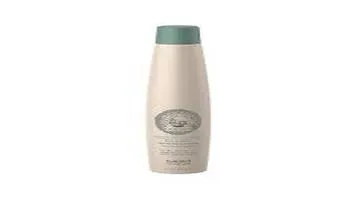The Rise and Shine of Organic Hair Care Products
Organic hair care products are formulated using natural ingredients that are free from synthetic chemicals, sulfates, parabens, and artificial fragrances. These products harness the power of plant-based elements like essential oils, herbal extracts, and natural butters to nourish and rejuvenate the hair and scalp. By avoiding harsh chemicals, organic hair care minimizes the risk of irritation and damage, making it suitable for sensitive scalps and environmentally conscious consumers. These products promote healthy hair growth, enhance shine, and maintain natural moisture balance, all while being eco-friendly and biodegradable. With a focus on sustainability, many organic hair care brands prioritize ethical sourcing and cruelty-free practices, offering a holistic approach to hair wellness that aligns with a greener lifestyle.

In an age dominated by the pursuit of wellness and sustainable living, the demand for organic hair care products has seen a remarkable surge. The beauty industry, once saturated with synthetic and chemical-laden formulas, is now witnessing a refreshing transformation. Organic hair care products, promising natural ingredients and eco-friendly practices, are captivating the attention of consumers worldwide. But do these products genuinely deliver on their promises, or are they merely a marketing gimmick? Let's delve deeper into the world of organic hair care to uncover the truth.
Ingredients: Nature’s Bounty
One of the most compelling aspects of organic hair care products is their ingredient list. Typically, these products are formulated with natural extracts, essential oils, and plant-based compounds. Ingredients like aloe vera, coconut oil, argan oil, shea butter, and chamomile are frequently highlighted. These natural constituents have been revered for their nourishing and healing properties for centuries.
For instance, coconut oil is celebrated for its deep conditioning abilities and its role in preventing protein loss in hair. Argan oil, often dubbed "liquid gold," is renowned for its hydrating and anti-frizz properties. Aloe vera soothes the scalp and promotes hair growth, while chamomile can enhance hair's natural highlights and add a luminous shine. The absence of sulfates, parabens, and synthetic fragrances in organic hair care products is a significant draw, especially for individuals with sensitive scalps or those who are eco-conscious.
Performance: A Mixed Bag
When it comes to performance, organic hair care products can be a mixed bag. Some users report dramatic improvements in hair texture, strength, and overall health. The natural oils and botanical extracts can indeed provide deep nourishment and hydration, leading to softer, shinier hair.
However, it is important to note that the effectiveness of these products can vary significantly based on individual hair types and needs. For example, individuals with very dry or damaged hair may find that certain organic shampoos and conditioners lack the heavy-duty moisturizing agents needed to repair their strands. Conversely, those with oily hair might appreciate the lighter, more balanced formulations that organic products often offer.
Another point of consideration is the lathering experience. Traditional shampoos often contain sulfates, which produce a rich lather. Organic shampoos, free from these harsh chemicals, may not lather as much, which can be an adjustment for some users. Nevertheless, the gentle cleansing action of these products can be beneficial for maintaining the scalp’s natural oils, promoting a healthier scalp environment in the long run.
Sustainability: A Green Choice
The sustainability factor of organic hair care products cannot be overstated. Many brands prioritize eco-friendly practices, from sourcing ingredients responsibly to opting for recyclable packaging. By choosing organic hair care, consumers often support companies that are committed to reducing their environmental footprint.
Moreover, organic farming practices, which avoid the use of synthetic pesticides and fertilizers, contribute to soil health and biodiversity. This is a crucial aspect for environmentally-conscious consumers who wish to make a positive impact through their purchasing choices.
Price: Worth the Investment?
One of the common deterrents for consumers considering organic hair care products is the price. These products are often more expensive than their conventional counterparts. The higher cost can be attributed to several factors, including the quality of ingredients, ethical sourcing practices, and smaller-scale production processes.
While the initial investment may be higher, many users find that the benefits justify the cost. Healthier hair, reduced exposure to harmful chemicals, and the satisfaction of supporting sustainable practices can be worthwhile trade-offs.
Brand Loyalty: Building Trust
Brand loyalty in the organic hair care market is built on trust and transparency. Consumers are increasingly savvy and demand authenticity from the brands they support. Companies that provide clear information about their sourcing methods, ingredient lists, and production processes tend to foster a loyal customer base.
Brands such as Aveda, John Masters Organics, and Rahua have established themselves as leaders in this space. Their commitment to quality and sustainability, coupled with positive customer reviews, has earned them a solid reputation.
Conclusion: The Future is Organic
Organic hair care products represent more than just a trend; they signify a shift towards healthier, more conscious living. While they may not be a one-size-fits-all solution, their benefits, rooted in nature’s bounty, are undeniable for many. The emphasis on natural ingredients, combined with sustainable practices, makes them a compelling choice for those looking to enhance their hair care routine while minimizing their environmental impact.
Ultimately, the decision to switch to organic hair care products is a personal one. It hinges on individual preferences, hair care needs, and values. However, as more consumers embrace these products, the beauty industry is likely to continue evolving towards greener, cleaner options. For now, the rise and shine of organic hair care products is a testament to the growing demand for authenticity, health, and sustainability in beauty.






